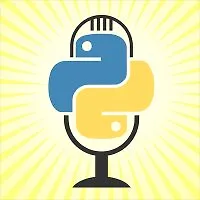
Talkpython
Talk Python Training - это ведущая онлайн-тренинговая компания, основанная в 2016 году с явной целью обеспечения высококачественного, глубоко технического обучения Python.
Python Memory Management and Tips Course
Управление памятью Python часто оказывается черным ящиком для большинства разработчиков. Вы, наверное, знаете, что Python использует подсчет ссылок, но как можно наиболее эффективно написать код для работы с ним? Знаете ли вы, что он также использует сборку мусора? Вы знаете, когда это дает толчок и как это влияет на производительность? С помощью этого курса вы узнаете все эти концепции и многое другое. Вы изучите их на конкретных примерах кода, а не только на теориях. И вы научитесь оптимизировать свой код, чтобы использовать меньше памяти и работать быстрее.
Этот уникальный курс научит не только тому, как работает управление памятью Python и как создавать код, который хорошо работает в этом мире, он предоставит множество конкретных методов, инструментов, шаблонов проектирования и многого другого, чтобы сделать ваши программы более эффективными с точки зрения памяти.
Если память Python (выделение, очистка и т. д.) всегда казалась странным черным ящиком, который вам приходилось принимать как должное, присоединяйтесь к этому курсу и откройте этот ящик. Есть много красивых и интересных аспектов поведения Python во время выполнения, которые заставляют ваш код работать. Вы должны понимать, что происходит от вашего имени.
Это пробный урок. Оформите подписку, чтобы получить доступ ко всем материалам курса. Премиум

Talk Python Training - это ведущая онлайн-тренинговая компания, основанная в 2016 году с явной целью обеспечения высококачественного, глубоко технического обучения Python.